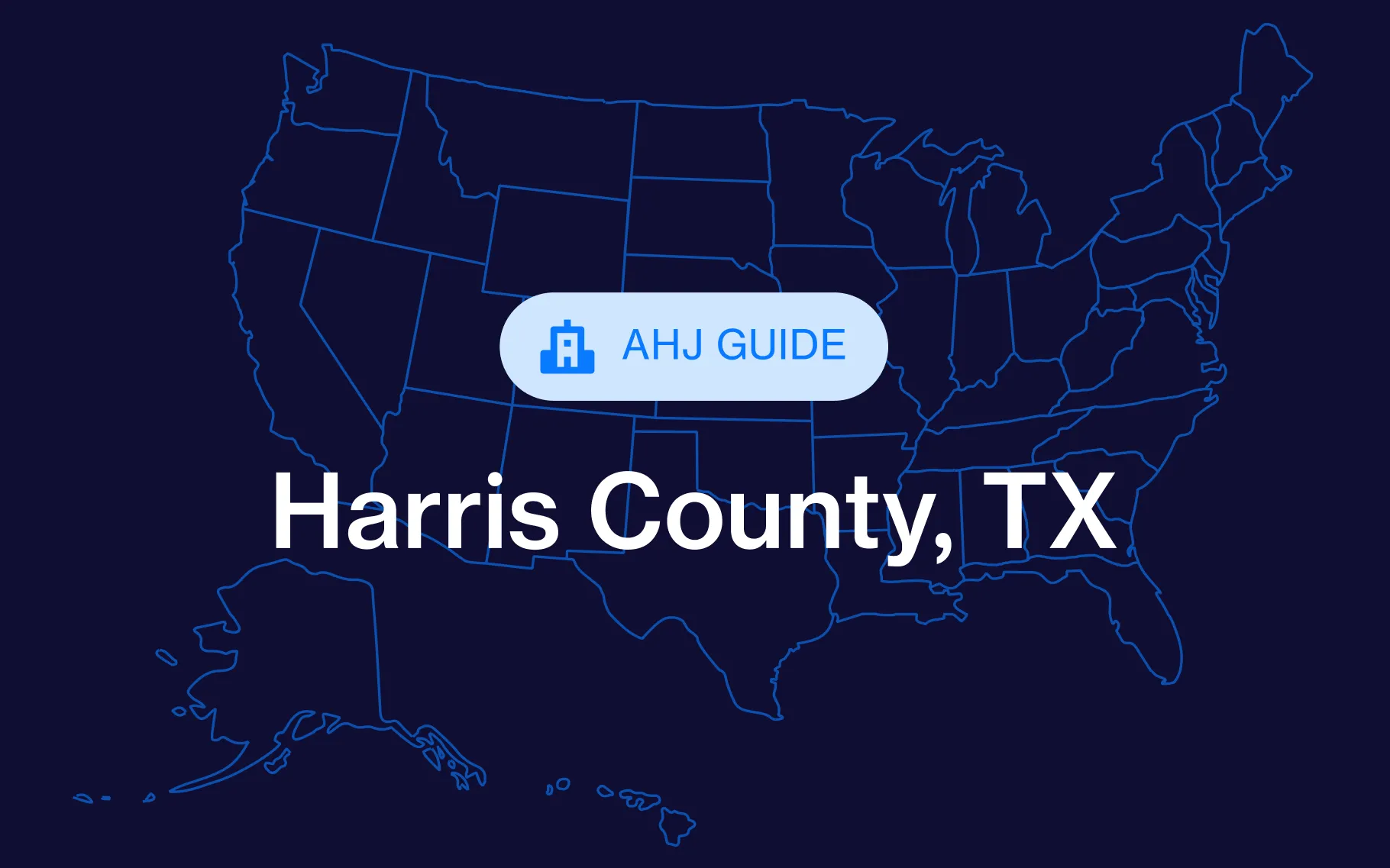Expanding into Texas? Statewide building standards are just the starting point — local requirements, permitting fees, and review timelines vary significantly across cities and counties. For builders, developers, GCs, and home services pros, understanding these differences upfront can save you weeks of delays and tens of thousands of dollars.
We’re breaking down everything you need to pull building permits in Texas, from what requires a permit to who issues it, cost structures, inspections, and tips to streamline your process.
What requires a building permit in Texas?
In Texas, most commercial construction and renovations must be permitted, including:
- New builds, additions, structural alterations
- Major electrical, plumbing, mechanical, and HVAC work
- Demolition or relocation of structures
- Site improvements like fencing, driveways, and pools
Cosmetic updates such as paint, carpet, or minor finishes typically don’t require a building permit in many jurisdictions.
Who issues building permits in Texas?
Permits are issued locally by city or county building inspection departments or by municipal development services.
Large cities often have centralized systems (such as the DallasNow portal in Dallas or the AB+C portal in Austin) to submit permits. However, smaller cities may still use regular online or paper submissions.
Texas building permit requirements
To apply for a large-scale commercial building permit, expect to provide:
- A completed application with validated address and valuation
- Sealed construction plans by registered Texas architects and engineers
- Trade-specific documents such as mechanical, electrical, plumbing, and fire protection
- Site-rated plans for draining and grading. Erosion may trigger an additional environmental review depending on your jurisdiction
- Texas Department of Licensing and Regulation (TDLR) registrations for accessibility if the project is less than $50,000
- Asbestos surveys for renovation or demolition sites
- Fees and bonds based on valuation and local jurisdiction
Texas building permit costs
As the largest state in the United States, the fee structure in Texas varies widely. Below we detail a handful of different municipalities so you can see the different fee structures that exist in Texas.
Budget tip: Add trade permit, technology review, reinspection, plan review, and delayed inspection fees into your total to prevent any surprise fees.
Unique considerations when permitting in Texas
- Trade permits follow building permits
- File separate mechanical, electrical, plumbing, gas, and fire permits
- Expedited reviews
- Major cities (like Dallas and Austin) offer quick-turn services for additional fees
- Industrialized module permits
- $75 fee via TDLR for modular commercial installs
- Expiration rules
- Certain permits, like those in Montgomery county, expire after 180 days of inactivity.
- Pre-construction and Certificate of Occupancy processes
- Cities like the city of Fate require pre-construction meetings and multiple departments' approval before a final sign-off. A Certificate of Occupancy is issued after a final inspection and code compliance.
How to get a building permit in Texas
- Identify the jurisdiction your project is located in (city vs. county)
- For big projects, consider requesting a pre-application meeting to review zoning, site plans, and trade requirements
- Prepare and submit sealed plans, trade applications, site surveys, TDLR/asbestos docs, insurance, bonds, and fees
- Undergo a plan review. If applicable, apply for an expedited review and pay any necessary fees.
- Pay issuance fees and pull the building permit
- Schedule inspections at foundation, framing, trades, fire, and final
- Obtain a certificate of occupancy once all inspections pass








